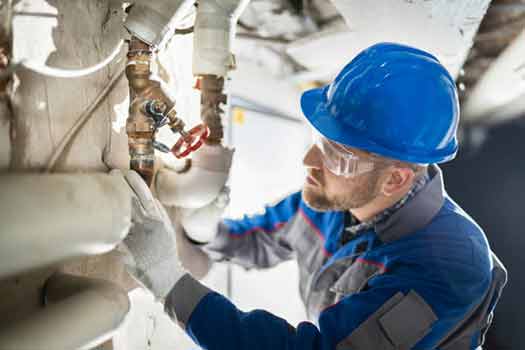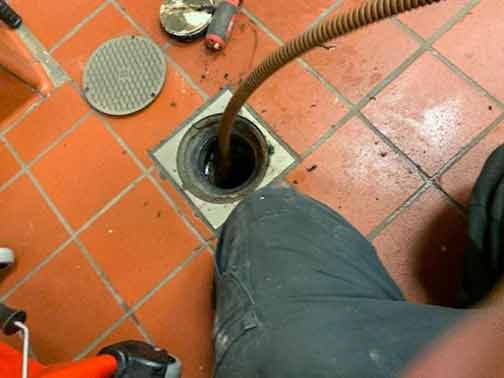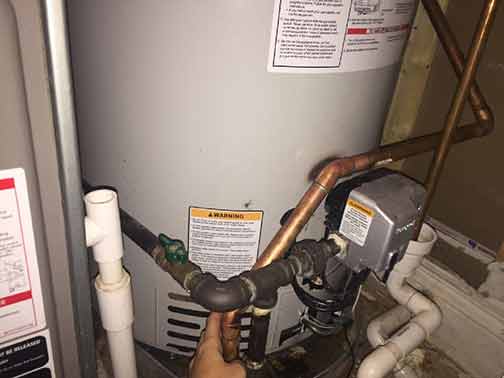
Commercial plumbing is a critical component of any business establishment. It is essential to ensure that the plumbing system is in good condition to avoid inconveniences and costly breakdowns. As with any system, commercial plumbing is prone to various problems that can significantly affect business operations. Therefore, it is crucial to have a basic understanding of the top commercial plumbing problems and how to solve them to minimize potential losses and damages. This article will explore the top five commercial plumbing problems and how to prevent and fix them.
Clogged Drains
Clogged drains are a common commercial plumbing problem that can affect any business. This problem can be caused by various factors, such as grease, hair, soap scum, and food debris, among others. If not addressed in time, clogged drains can lead to wastewater backups and bad odor, which can significantly disrupt business operations and create an unwelcoming environment for customers and employees. To solve clogged drain problems, businesses can take several steps, such as:
- Train employees on proper waste disposal practices to prevent clogging
- Install drain strainers to trap debris
- Use eco-friendly drain cleaning products to dissolve clogs
- Hire a professional plumber to hydro jet the drain system for any damage

If not addressed in time, clogged drains can lead to wastewater backups and bad odor, which can significantly disrupt business operations and create an unwelcoming environment for customers and employees.
Leaky Faucets and Toilets
Leaky faucets and toilets are another common commercial plumbing problem that can waste a significant amount of water and increase utility bills. Leaks can be caused by worn-out seals, damaged pipes, or faulty fixtures. If ignored, leaks can damage walls, floors, and other parts of the building, leading to costly repairs and renovations. To prevent and fix leaky faucets and toilets, businesses can take the following steps:
- Regularly inspect faucets, toilets, and pipes for leaks
- Replace worn-out seals and fixtures
- Install water-efficient faucets and toilets to conserve water and reduce utility bills
- Contact and hire a commercial plumber to fix complex leaks and perform routine maintenance
Broken Water Heaters
A broken water heater can significantly disrupt business operations, especially in establishments that rely on hot water for their activities, such as restaurants, hotels, and hospitals. Common signs of a broken water heater include no hot water, slow heating, discolored water, and strange noises. The causes of broken water heaters can range from old age to faulty installation or maintenance. To prevent and repair broken water heaters, businesses can take the following measures:
- Regularly inspect water heaters for signs of damage, wear, and tear
- Replace old and outdated water heaters with new and energy-efficient models
- Enroll in a maintenance plan with a professional plumber to perform regular inspections, cleaning, and repairs
- Contact a professional plumber immediately if you notice any signs of a broken water heater

Common signs of a broken water heater include no hot water, slow heating, discolored water, and strange noises.
Backflow Issues
Backflow occurs when contaminants, such as chemicals and bacteria, flow back into the main water supply. This can be caused by a sudden change in water pressure, damaged backflow preventers, or cross-connection between potable and non-potable water sources. Backflow issues can pose a health risk to customers, employees, and the community, leading to lawsuits, fines, and reputation damage. To prevent and fix backflow issues, businesses can take the following steps:
- Install backflow preventers to ensure they are working correctly
- Implement cross-connection control measures to prevent contaminated water from entering the main supply
- Enroll in a backflow prevention program with a certified plumber to perform regular inspections, testing, and repairs
- Contact a professional plumber immediately if you notice signs of backflow, such as discolored water or unusual odor
Burst Pipes
Burst pipes are a severe commercial plumbing problem that can cause extensive damage to your building, fixtures, and equipment. Burst pipes can be caused by various factors, such as freezing temperatures, high water pressure, corrosion, and poor maintenance. To prevent and fix burst pipe emergencies, businesses can take the following measures:
- Insulate pipes in cold areas to prevent freezing and bursting
- Regularly inspect pipes for signs of corrosion, leaks, and damage
- Replace old and worn-out pipes with new and durable ones
- Hire a professional plumber to perform routine maintenance and repairs
Summing It Up
Commercial plumbing problems can significantly affect business operations, reputation, and profitability. Therefore, it is essential to take preventive measures to minimize the risk of plumbing problems and have a professional plumber on standby to fix any issues that may arise. By following the tips highlighted in this article, businesses can save money, conserve water, and provide a safe and healthy environment for their customers and employees.